ICANN
Latest

ICANN says it won't kick Russia off the internet
On Monday, Ukraine petitioned ICANN to turn off Russia's internet over its invasion. On Thursday, ICANN politely refused.

ICANN blocks proposal to let .org be sold to a for-profit group
The ICANN Board has rejected Internet Society’s proposal to sell control of the .org domain and the Public Interest Registry, which manages it, to private equity firm Ethos Capital for $1.1 billion.

The price of a .com domain is set to rise, and some sellers aren't happy
If you're the sort who buys domains for fun, or to inspire you to start a future project, your hobby's about to get a little pricier. ICANN is just days away from ending a consultation into the future of the .com top-level domain that'll put an end to Obama-era price freezes. If successful, it'll see the cost of a .com address rise by two bucks by the end of 2026, and potentially more thereafter.
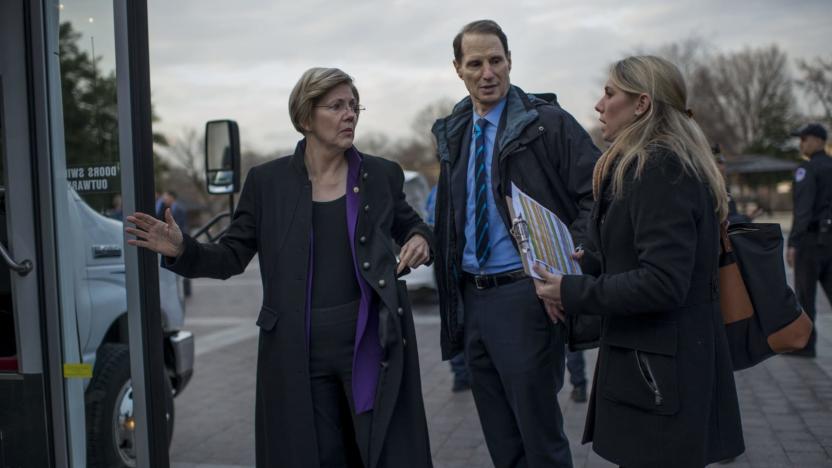
Congress worries sale of .org could harm non-profits
Control over the .org internet domain is close to changing hands, and American politicians aren't happy. Senators Richard Blumenthal, Elizabeth Warren and Ron Wyden have joined Rep. Anna Eshoo in sending a letter demanding answers over the Internet Society's sale of .org and the Public Interest Registry (which manages the domain) to a private equity firm, Ethos Capital. The congresspeople want everyone involved to both outline how transparent they'll be as well as assurances that they'll keep the domain accessible, neutral and safe for non-profits.
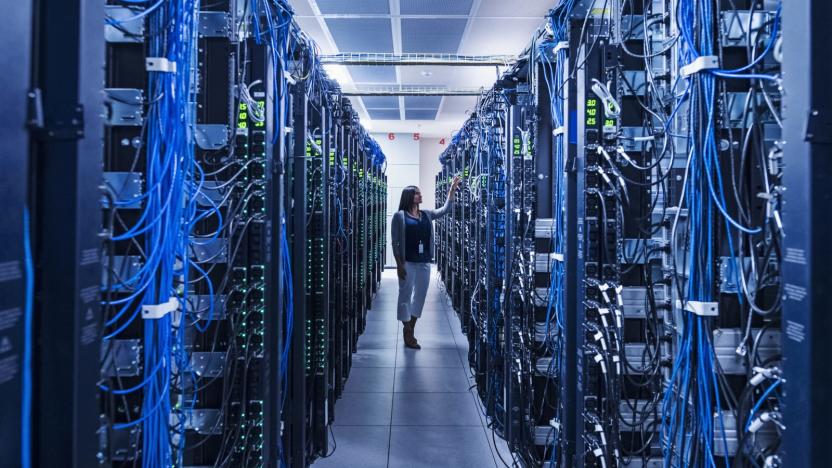
Internet gatekeeper warns of 'ongoing and significant' DNS attacks
If you ask one key organization, part of the internet's very backbone is under assault. ICANN, the company vital to managing many internet addresses, has warned of "ongoing and significant" risks to the Domain Name System infrastructure. There have been escalating reports of attacks on DNS, ICANN said, including hijacking attempts that point domain visitors to rogue servers. Some of these appear to have been state-sponsored attacks from Iran, while others have targeted the US as well as friendlier countries like Lebanon and the UAE.

US reduces its internet oversight
After lengthy delays and no small amount of political opposition, it's official: the US has given up a key aspect of internet oversight. As of October 1st, the Internet Corporation for Assigned Names and Numbers (the outfit that manages the domain name system) is no longer under the watch of the US' National Telecommunications and Information Administration. ICANN is now a private, non-profit organization that will take its input from academics, companies, governments and the public. While the American government didn't really wield its influence, it no longer has that option.
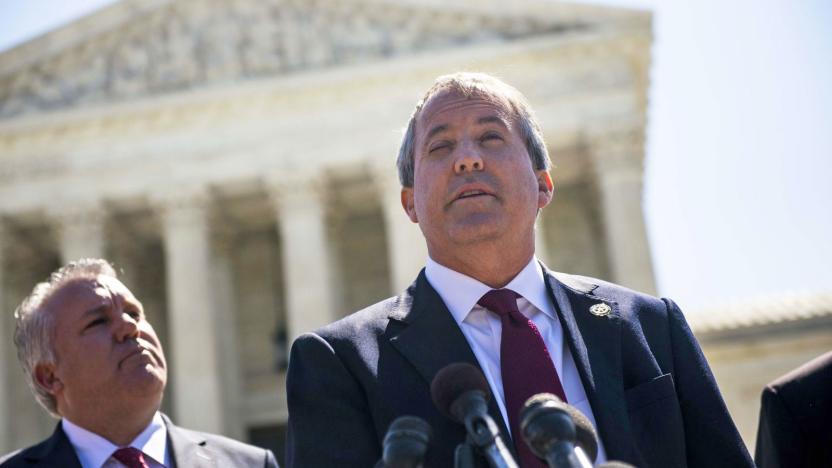
States sue to block White House plan for internet transition
If you thought the battle over whether or not the "keys" to the internet would be handed over to an international governing body might be over quickly, we've got some bad news. Attorneys general from Texas, Arizona, Oklahoma and Nevada filed a lawsuit this week in an attempt to block the Obama Administration's plan to cede control of the internet to the Internet Corporation for Assigned Names and Numbers (ICANN) in October. The group argues that President Obama must get Congressional approval before "giving away government property."

Democrats slam Republicans fighting the internet handover
If you thought Facebook and Google raised a big fuss over Republican opposition to the US' plan to hand the internet's 'keys' (the authority managing domain name assignments) to an international governing body, you haven't seen anything yet. A quintet of House and Senate Democrats have used TechCrunch to post an open letter to the Republicans, chastising them over their resistance to the transition to ICANN. While Senator Ted Cruz and supporters have previously claimed that international control would make it easier for authoritarian governments to censor the internet, the Democrats reject this outright. The task of managing the domain name system is "clerical," they argue -- countries like China or Russia can't manipulate content just because DNS isn't under exclusive US oversight.
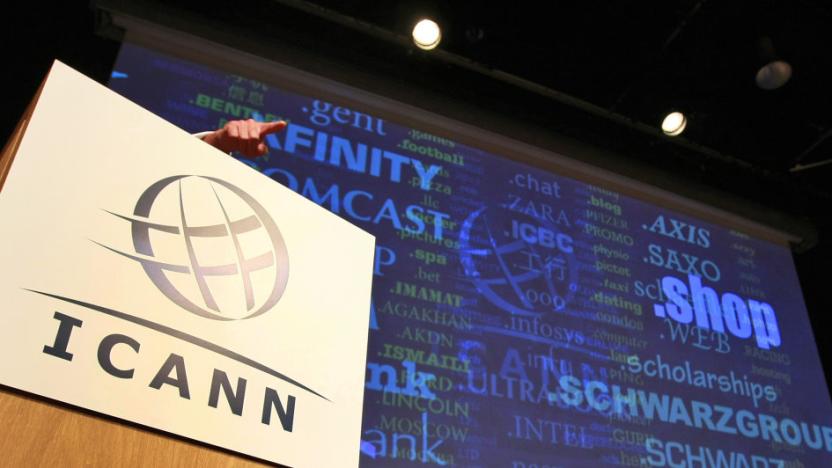
Facebook, Google urge Congress to hand over internet control
On October 1st, the US is supposed to hand the "keys" of the internet to ICANN, and Congress is not happy about it. The mostly Republican lawmakers, led by Ted Cruz, feel that ceding control will stifle online freedom and give power to authoritarian governments. However, technology companies including Facebook, Google and Twitter penned an open letter to Congress, urging lawmakers to hand internet domain control to the international community as promised.
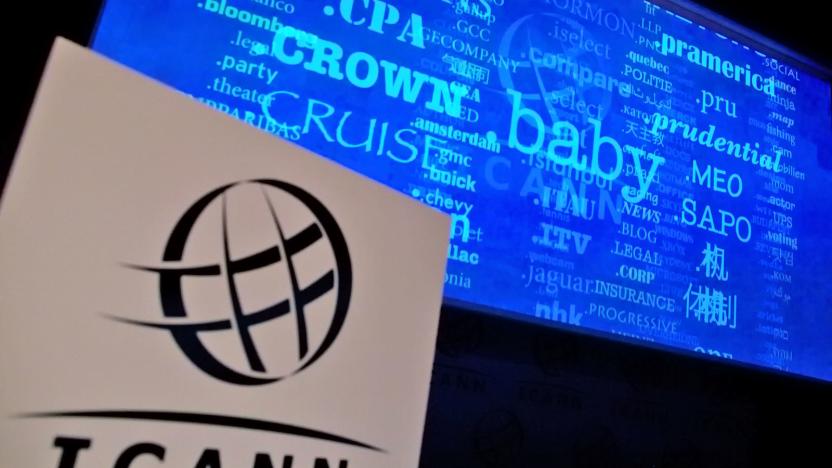
US government cedes control of the internet in October
On October 1st, the US Government's National Telecommunications and Information Administration will hand over control of the internet's domain name system to the Internet Corporation for Assigned Names and Numbers (ICANN), a "multi-stakeholder" nonprofit organization. While the change will be invisible to the billions of internet users out there, starting in October, the US government will no longer control what some call the internet's "phone book." The domain name system works by associating a web address or URL with a site's IP address, and it is crucial to the way the modern web works. Since 1998, the NTIA and ICANN have had a zero-cost contract in place that gives the US government the authority over the system, although the government's role was largely symbolic. Technically, the Obama administration has agreed not to renew the contract, which expires on September 30th. ICANN, a California-based group made up of representatives from tech giants, foreign governments and other "interested parties," actually began the process of finally taking over the reins when it detailed its transition plan last year. Again, regular users won't notice a difference in their internet come October, but the switch isn't without controversy. In the past, some have argued the US should maintain control in order to prevent foreign governments from censoring their citizens. More recently, however, the Obama administration and the tech community believe it is a necessary move to maintain international support for the internet and a decentralized governing body.

The US won't end its internet oversight for another year
If you were looking forward to the US relinquishing its internet oversight at the end of September... well, you'll be disappointed. The Department of Commerce has delayed the transition by "at least" a year. Simply put, the community isn't yet ready to take the reins -- it won't have time to both submit and implement its plans, which need a government rubber stamp to go ahead. The breathing room should give ICANN and friends a smoother transition that keeps the internet's domain name system out of the hands of governments and other parties that might want to limit free speech or privacy. There's no certainty that this is the last delay, but the Commerce Department can extend its ICANN partnership for up to three more years if there's a particularly serious logjam.

ICANN reveals plan for ending America's control of the internet
Though it's called the "world wide web," the US Commerce Department has held the keys to the internet since its inception in the '90s. Last year, it agreed to hand them over to worldwide bodies and asked ICANN, the group that manages internet addresses, to come up with a plan. ICANN unveiled the much anticipated report yesterday, and has given the public until September 8th to comment on it. The gist of the 100-page document? Internet control functions will be given to ICANN and an oversight body made up of "interested parties" that has no connection to any world governments.

The internet's governing body was hacked, too
The Sony Pictures hack is getting all of the attention right about now, but it turns out that another prominent organization recently was victim to a security breach as well. Last month, ICANN, the outfit that regulates the internet's domain names and IP addresses, fell prey to a phishing attack that tricked employees into giving out email login info. What'd the ne'er-do-wells get a hold of? Administrative access to all the files in the Centralized Zone Data System. Which, as The Register points out, granted the hackers access to unalterable generic zone files (what're needed to resolve domain names to IP addresses), and gifted them with contact information for, among others, some of the world's registry administrators. Passwords were stored as "salted cryptographic hashes," but ICANN deactivated them as a precaution anyway. The firm's wiki was breached too, but aside from public information, a members-only index page and one user's profile, no other private data was viewed.

Scotland finds independence on the web with new .scot domain
After heated debates and divided opinions, a slim majority of Scots voted to stay part of the UK in the recent Scottish independence referendum. Nevertheless, Scotland has achieved a slightly different type of liberty today, carving out a corner of the internet it alone can call home. The new .scot top-level domain is now officially open, meaning any and all can register websites with the Scottish-centric suffix. This "general release" follows the domain's announcement in July, when certain organisations like Scouts Scotland got early access, and businesses were allowed to stake their claims to relevant addresses. The .scot domain is the latest UK-focused slice of the web to go live after .london sites went up for grabs earlier this month. It also beats a pair of Welsh domains that are expected to become available to the masses in spring next year -- around the same time Scotland will no doubt be looking to break its six-year losing streak against Wales in the Six Nations.

'Father of the internet' Vint Cerf explains how web addresses work
For most of us, browsing the web is pretty easy: type in a domain name, mash the enter key, and well, here you are. Behind the scenes, however, it's a mess of IP addresses, numbers and international stake holders. Part of ICANN's job is sorting all that out and making your web experience simple -- and recently its players have been trying to reduce the US government's influence on the organization. A little unsure how this power shift will effect you? Then read on: Google and internet progenitor Vint Cerf have teamed up to explain what ICANN is, how it's managed and why its global changes are good for the future of the internet. You can see the full video (complete with meme references and funny pictures) after the break.

France wants more say over internet rules to protect its wine sales
It's no secret that many countries want greater control over the internet than they have under the current, US-centric model. However, France is demanding more influence for a very specific (if not entirely unexpected) reason: wine. The country isn't happy that the overseer for internet addresses, ICANN, is launching .vin and .wine top-level domains without letting other countries ask for usage restrictions. Government ministers are worried that this lets site owners violate international food naming agreements with impunity -- an American company might use champagne.wine to sell sparkling drinks that don't come from French soil, potentially hurting sales of the real deal.

Nations gather to decide who gets the keys to the internet
Many countries are (understandably) unhappy with the influence the US wields over the internet, and in particular its control of ICANN, the web's "back end." The Department of Commerce has agreed to give up its oversight of the body, and is meeting various nations at Net Mundial in Brazil this week to discuss exactly how to do that. The gathering itself is controversial, as US political figures from the right and left, including ex-President Bill Clinton, oppose moves to give up ICANN control. Specifically, Clinton thinks it could lead to many states "protect(ing) their backsides instead of empowering people." Similar concerns over censorship have been expressed by the EU and others, especially given the recent goings-on in Turkey and elsewhere.

US to reduce its oversight of a key internet governor, but don't expect big changes
The US government has been gradually reducing its influence over the internet ever since it offloaded domain management responsibilities to ICANN back in the late 1990s, and today it took an important (if mostly symbolic) step toward severing those connections for good. The Department of Commerce has asked ICANN to work on a transition plan that will end American monitoring of the firm, letting it run independently. The only major stipulations are that the resulting system is free of government control, maintains cooperative governance and fosters an open internet. The transition was always going to be in the cards at some point, but the proposal request is a gesture toward an international community worried that a surveillance-happy US has too much say over what happens online. Don't be too quick to celebrate, though. A big policy change is unlikely, at least in the short term -- the Commerce Department has only had limited practical control. Also, ICANN itself only has so much reach. While it does watch over domain names and network addresses, it can't completely block sites or open them up to spies. At the moment, the shift is more about fulfilling promises and reassuring global partners than anything else.

Europe pushes for a less US-dominated internet
The European Union is more than a little jittery about a US-centric internet after learning the extent of the country's mass surveillance. Accordingly, the European Commission has proposed a whole host of measures that would shift control to the international community. It wants a firm schedule for globalizing internet infrastructure, more power for the Internet Governance Forum, fewer conflicts between countries' internet laws and a venue for improving transparency policies. The regulator doesn't want to give too much clout to any one group, though -- Commission VP Neelie Kroes prefers a "multi-stakeholder" approach that lets innovators move at their own pace. The proposal still needs support from both the Council of the EU and the European Parliament before it can take effect, but it could give Europe a united front when it's pushing for changes in internet policy. [Image credit: The Council of the European Union]

London becomes the latest city to get its own top-level domain
Not to be outdone by New York City, London is set to follow its transatlantic cousin in getting its very own domain name. ICANN, regulator of all things domain related, today gave the British capital the go-ahead to offer .london addresses to "businesses, organisations and individuals". While it gives Londoners the chance to show a bit of hometown love, the domain has already attracted the attention of "tens of thousands of businesses," which will each do their bit to help to boost London's online identity. Like the city's house prices, expect to pay a little extra to secure your own little piece of .london when registration opens in Spring 2014.









